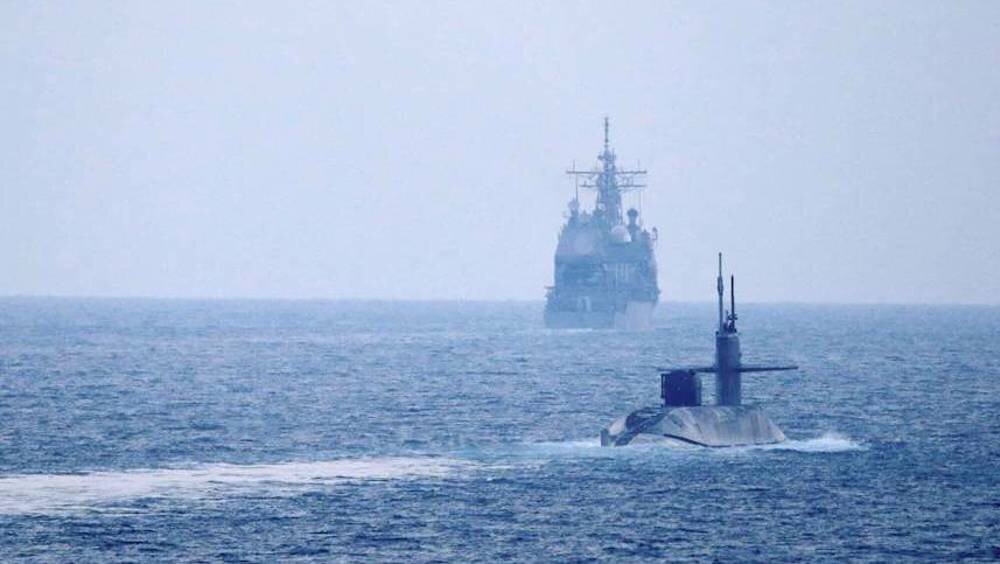Iran stands ready to confront any U.S. adventurism

TEHRAN – As Iran makes preparations for commemorating the first martyrdom anniversary of its counterterrorism hero, U.S. President Donald Trump scrambles to find an excuse for waging a war on Iran to cover up his failures over the past four years.
This was on full display in Trump’s recent threatening tweets against Iran. Following a vague rocket attack on the U.S. embassy in Iraq, Trump and his secretary of state, Mike Pompeo, issued stern warnings to Iran and accused it of standing behind the attack.
Nearly two weeks ago, the U.S. embassy in Baghdad came under attack after weeks of relative calm. More than 20 rockets landed inside the Green Zone of Baghdad, a heavily fortified district in which the U.S. embassy and other government buildings are located. Many of these rockets hit the embassy and, according to Iraqi press reports, caused injuries among several Americans working at the embassy.
Without offering any evidence, the U.S. quickly pointed the finger at Iran, claiming that “Iran-backed militias” were behind the attack.
“Iran-backed militias once again flagrantly and recklessly attacked in Baghdad, wounding Iraqi civilians,” Pompeo claimed in a tweet.
Shortly after this tweet, Trump returned to his warmongering rhetoric against Iran, issuing a stark threat against Iran.
“Our embassy in Baghdad got hit Sunday by several rockets. Three rockets failed to launch. Guess where they were from: IRAN. Now we hear chatter of additional attacks against Americans in Iraq. Some friendly health advice to Iran: If one American is killed, I will hold Iran responsible. Think it over,” Trump tweeted on Thursday.
Iran strongly rejected the U.S. accusation, calling it “dubious” and “ill-intended.” Saeed Khatibzadeh, spokesman for Iran’s Foreign Ministry, said last week that “the kind, timing and content of their statements and tweets are dubious and ill-intended.”
Despite Iran’s denial, the U.S. continued to deploy its military assets and troops to the region in what appeared a concerted effort to fabricate a pretext for a war against Iran. The U.S. announced the arrival of the nuclear-powered submarine USS Georgia in the Persian Gulf, the first deployment of this kind in at least eight years. The U.S. also flew B-52 bombers to the region in a show of force against Iran.
This is all while Iran has made it clear that it does not seek tensions with the U.S. but the White House is exploiting the first anniversary of the assassination of General Qassem Soleimani to create the misperception that Iran is preparing to stage an attack on U.S. targets in the region. Of course, Iranian officials have repeatedly said that Iran will avenge the blood of the top general, but they ruled out any possible military confrontation with the U.S. forces in the coming days. In fact, Iran has said that it seeks to expel the U.S. from the region through various means including by strengthening the Resistance Axis politically.
But at the same time, Iran expressed readiness to defend itself against any American aggression.
“We have made it clear that while we are not after tensions, we will use everything in our power to defend the interest and national security of Iran,” Khatibzadeh said in his weekly press briefing.
Iran also said that it has obtained intelligence showing the U.S. is plotting to fabricate a pretext for war on Iran.
“Instead of fighting Covid in U.S., @realDonaldTrump & cohorts waste billions to fly B52s & send armadas to OUR region. Intelligence from Iraq indicate plot to FABRICATE pretext for war. Iran doesn't seek war but will OPENLY & DIRECTLY defend its people, security & vital interests,” Foreign Minister Mohammad Javad Zarif said in a tweet on Thursday.
Zarif had earlier said that “Trump will bear full responsibility for any adventurism on his way out,” after the U.S. president leveled accusations at Iran for the attack on the embassy.
Despite Iran clearly announcing that it does not seek war, the U.S. keeps claiming that Iran may attack U.S. forces or interests in the region. On Friday, an unknown U.S. official told NBC News that the U.S. has seen increasing indications that Iran could be planning an attack against American forces or interests in the West Asia region.
These accusations are likely to make things worse. Iran has said it does not seek war. Therefore, third-party groups and players may seek to push the U.S. into a costly war with Iran that it is not ready to fight.
Iran has warned about such players. Government spokesman Ali Rabiei has recently warned of possible provocations and false flag operations in Iraq aimed at tarnishing Iran’s image, adding that Iran will hold the U.S. regime and its regional clients responsible for these operations.
Rabiei also said that Iran is not responsible for what is happening in Iraq, underlining that there are a lot of groups that seek to end the occupation in line with their national and ethnic motives. “Their actions have nothing to do with Iran,” the government spokesman asserted.
